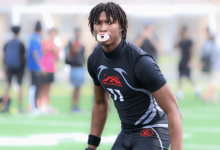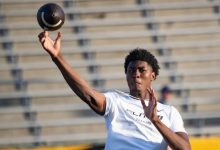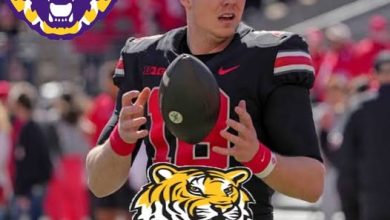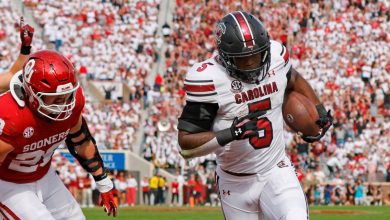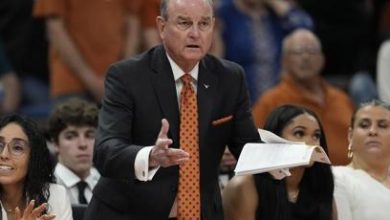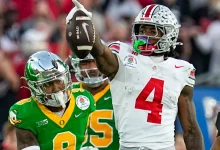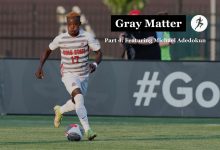How Long Will Marcus Freeman Realistically Lead Notre Dame? Assessing the Future of the Irish Head Coach
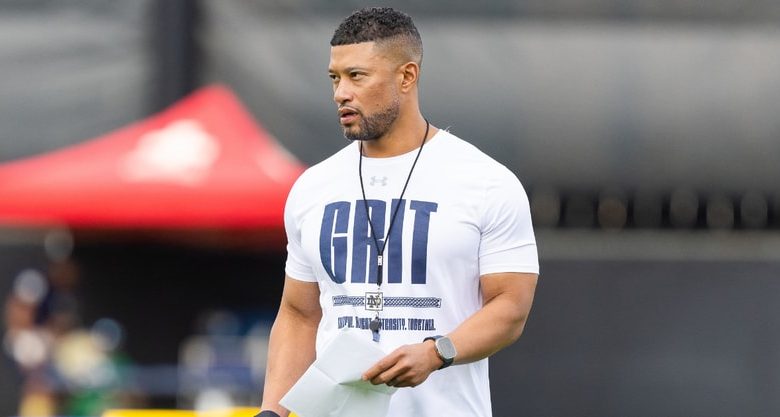
Since taking over as head coach of the Notre Dame Fighting Irish in 2022, Marcus Freeman has seen a career trajectory marked by high expectations, substantial pressure, and a blend of early success and challenges. As he enters his third season at the helm, it’s important to assess not only his current standing but also the broader context surrounding his leadership of one of college football’s most storied programs. So, how long will Marcus Freeman realistically lead Notre Dame? To answer this, we must consider several factors, including Freeman’s contract, coaching performance, the program’s outlook, and external challenges that could influence his tenure.
Marcus Freeman’s Rapid Rise
When Marcus Freeman was hired as the head coach of Notre Dame in 2022, it was a bit of a surprise to many in the college football world. Freeman was relatively new to the head coaching game, having served only one year as the team’s defensive coordinator. However, Freeman had a reputation as a rising star in the coaching world, particularly after turning around Notre Dame’s defense. The Fighting Irish were impressive on defense in the 2021 season, and Freeman’s passion, intelligence, and energy made him a popular choice among players and fans.
Freeman’s hiring also came amid a moment of turmoil for the program. The sudden departure of Brian Kelly, who had led Notre Dame for 12 years, left a void in the leadership of the team. The Notre Dame administration sought to maintain stability and build on Kelly’s achievements, which included multiple College Football Playoff appearances, by promoting Freeman, a coach who already knew the culture of the team and had built rapport with the players.
Early Performance and Expectations
Freeman’s early years at Notre Dame have been a mixed bag. In his first season (2022), he faced a challenging schedule and struggled with consistency. A season-opening loss to Ohio State, while expected, was a tough start for a coach trying to prove himself. However, Freeman showed resilience, leading Notre Dame to strong finishes, including an impressive bowl win over South Carolina. The team’s performance that season was a testament to Freeman’s leadership and ability to get the most out of his players.
The 2023 season was a turning point. Notre Dame finished 10–2, and Freeman managed to navigate the difficult waters of high expectations while maintaining a steady course. However, Notre Dame’s losses to top-tier programs like Clemson and USC highlighted the areas that still needed improvement, especially on offense. Still, Freeman demonstrated growth in his role, and he became more adept at managing the game and handling the pressures of being a head coach at a premier program.
Contractual Commitments and Financial Considerations
In December 2024, Freeman was awarded a lucrative contract extension through the 2030 season. This extension is a clear indication of the university’s faith in his long-term ability to lead the program. The financial terms of the deal, reported to be worth over $9 million annually, come with performance-based incentives, signaling that Freeman’s future at Notre Dame is closely tied to the program’s success in big games.
The buyout clause in Freeman’s contract also reflects the program’s confidence in him. While the contract provides significant security, it also ensures that the university can make changes if Freeman fails to meet the program’s lofty expectations. Given the history of Notre Dame’s commitment to excellence and their willingness to make major changes when needed, Freeman is fully aware that while his job is secure in the short term, long-term success will dictate how long he stays in South Bend.
Recruiting Success and Player Development
A significant factor in Freeman’s future will be his ability to recruit top-tier talent. Notre Dame is known for its academic rigor and unique culture, which can sometimes be a challenge in recruiting against powerhouse programs that offer both strong football and a more traditional college experience. Freeman, however, has done an exceptional job of balancing the academic aspects with the need for athletic excellence.
Freeman’s recruiting efforts have been impressive, particularly his success in securing top talent in the 2024 class. The Fighting Irish have ranked among the top 10 in national recruiting classes, and Freeman’s ability to attract high-caliber players speaks to his reputation and the program’s potential under his leadership. With a mix of experienced players and promising recruits, Notre Dame’s roster looks poised for future success, and Freeman’s ability to continue this trend will be a key factor in his tenure.
Moreover, Freeman has shown a knack for player development. Under his guidance, Notre Dame’s defense has remained one of the best in the country, and Freeman has brought out the best in players like safety Kyle Hamilton, who became a first-round NFL Draft pick. His ability to develop talent is critical for Notre Dame, where recruiting classes alone are not always enough to guarantee success. This aspect of Freeman’s leadership will continue to be vital as he works to develop the next generation of stars.
External Challenges
While Freeman’s performance has been impressive, there are significant challenges that could impact how long he leads Notre Dame. One of the largest challenges is the shifting landscape of college football. Conference realignment, the impact of the transfer portal, and the ever-increasing financial aspects of college football all play a major role in determining a coach’s longevity.
For Freeman, the growing influence of the transfer portal presents both opportunities and challenges. While the portal allows him to quickly shore up areas of weakness, it also adds a layer of unpredictability to roster management. Notre Dame’s strict academic requirements can make it more difficult to fully utilize the transfer portal compared to other schools, limiting Freeman’s flexibility. His ability to navigate this new reality and build a cohesive roster despite these limitations will play a big role in how long he stays at Notre Dame.
Additionally, Freeman must contend with Notre Dame’s status as an independent program. While the Fighting Irish have enjoyed significant success as an independent, they also face scheduling challenges that some of their conference counterparts do not. The pressure to maintain a national contender status while dealing with these challenges is a constant balancing act. Freeman must continue to prove that Notre Dame can compete at the highest level without the benefit of conference championships, a key factor that could influence his long-term standing.
The Pressure of Success and Public Perception
One of the biggest factors in Freeman’s future will be the ever-present pressure to win at Notre Dame. The Fighting Irish are a blue-chip program with national championship aspirations every year. The expectation is nothing short of elite performance, and Freeman’s success in the coming years will largely be measured by whether he can deliver a national championship. The pressure to win big, particularly in a conference-less environment where every game has greater national significance, is immense.
Notre Dame fans are notoriously passionate, and their expectations are sky-high. Freeman will face a level of scrutiny that is unmatched in most other programs, and his ability to handle the pressure will be critical. Winning big games, especially against top-ranked teams, will be essential to maintaining support from both fans and the university administration.
Looking Toward the Future
Looking ahead, Marcus Freeman has a lot of potential to remain at Notre Dame for many years. His recruiting efforts, leadership, and growth as a coach all point to the possibility of sustained success. However, his future at Notre Dame will ultimately be determined by his ability to meet the program’s lofty expectations. The next several years will be crucial in solidifying his legacy at the school.
If Freeman can continue to build a competitive, championship-caliber team while navigating the complexities of college football’s evolving landscape, he has the potential to lead Notre Dame back to national prominence. Whether or not he can claim a national championship and continue to recruit at a high level will determine whether he leads Notre Dame for the long haul or if the university eventually looks for a change.
Marcus Freeman’s tenure at Notre Dame has been impressive thus far, marked by strong performances on the field, savvy recruiting, and personal growth as a coach. His future at Notre Dame is promising, but there are significant challenges ahead, particularly with the changing landscape of college football and the program’s inherent pressures to succeed. As long as Freeman continues to build on his success and adjust to these challenges, he could very well lead the Fighting Irish for years to come. The question of how long he will stay at Notre Dame will ultimately depend on whether he can consistently meet the expectations of one of the most storied programs in college football history.

